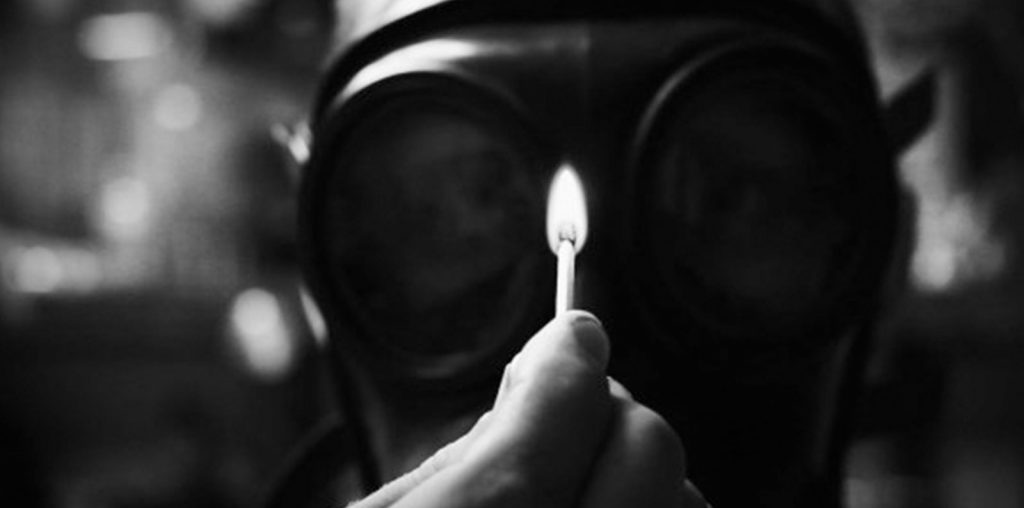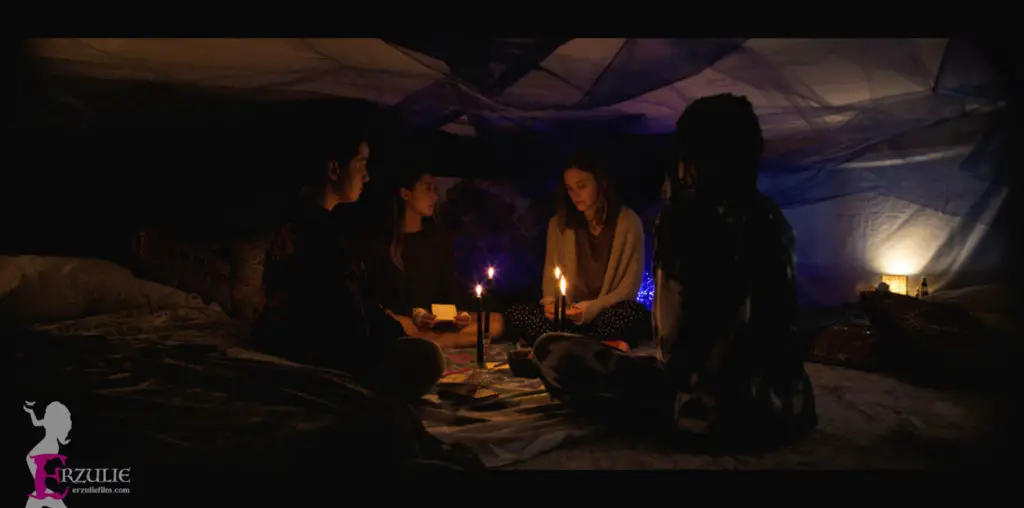
BOOTLEG FILES 146: “Oh, Mr. Porter!” (1937 British comedy starring Will Hay).
LAST SEEN: We cannot confirm the last public screening of this title.
AMERICAN HOME VIDEO: None.
REASON FOR DISAPPEARANCE: It is unknown in the U.S., despite being a classic in the U.K.
CHANCES OF SEEING A DVD RELEASE: Nil.
When Americans claim they love British comedy, they’re not entirely on the mark with their comments. Yes, they may love British comedy – but only the comedy that gets exported or finds an audience on this side of the Atlantic. For every Monty Python, Benny Hill or “Absolutely Fabulous” that resonates with U.S. audiences, there are plenty of funny people like Gracie Fields, Morecambe and Wise or The Goodies who were revered at home but never truly clicked with American tastes. But at least they got exported to America – unlike, say, the majority of the Old Mother Riley movies or the Carry On flicks. Those long-running series never played in American theaters simply because they were “too British.”
Will Hay falls into the latter category. The prestigious “Halliwell’s Who’s Who in the Movies” lists him as being among the screen’s greats, and the British Film Institute declared his 1937 comedy “Oh, Mr. Porter!” to be among the 100 best British films of the 20th century. But for Americans, the reaction to that is inevitably: Will Who?
Will Hay was a comic performer who rose through the ranks of the British music halls (the Anglo equivalent of American vaudeville) via the legendary Fred Karno ensemble that also gave Charlie Chaplin and Stan Laurel their first big breaks. Hay perfected the character of the seedy, bumbling schoolmaster who barely keeps his job despite his own blatant incompetence and the hectoring of his less-than-cooperative students. With his awkwardly balanced spectacles and dyspeptic demeanor, Hay’s character was physically and intellectually ill-at-ease with the world. But not unlike W.C. Fields, he managed to mine laughter from making a seemingly unsympathetic character into a comic anti-hero.
Hay brought the schoolmaster character to British films in the mid-1930s, but the educational setting could only take him so far. Instead, he decided to move the character’s concept into other environments where his bumbling and slippery grasp on authority could also take root. In 1937, the British railroads received Hay’s nonsense with “Oh, Mr. Porter!” while Hay had new support to replace his unruly students of his headmaster act: an elderly crank played by Moore Marriott and an indolent fat youth played by Graham Moffatt. Some British critics considered the teaming of Hay, Marriott and Moffatt as the local answer to the Marx Brothers.
But unlike the Marx Brothers’ films, “Oh, My Porter!” is not a particularly funny production. At least not from an American standpoint. The film engages in broad slapstick (which, apparently, was not Hay’s specialty) and wordplay which falls flat in the trans-Atlantic crossing. Unlike the Marx Brothers, who were larger-than-life eccentrics with slip-second comic timing, the Hay-Marriott-Moffatt are fairly quotidian characters whose bickering and insults eventually become boring. It is difficult to imagine how this film can command a sense of importance in its home country – unless, of course, this is an aspect of British comedy that Americans just don’t understand.
“Oh, Mr. Porter!” finds Hay as a railroad porter who wants to become a stationmaster. He is not the most efficient porter, as he winds up wrecking the dedication of a new station by blowing engine steam on the visiting dignitaries. However, his sister is married to a powerful senior officer in the railroad management, so Hay gets both a promotion and an exile: to the derelict Northern Ireland village of Buggleskelly.
Upon arrival, Hay discovers the Buggleskelly station is a mess. He also discovers Marriott and Moffatt as his less-than-helpful assistants. Marriott initially greets Hay by mistaking him for a passenger, snapping “The next train’s gone!” (that became something of a British catchphrase, inexplicably). Moffatt is equally unhelpful, kicking the station’s chocolate vending machine for free candies. Hay scolds him by saying: “What’s the idea of kicking it? What do you think the slot’s for?” Moffatt replies: “To blow down if the kick don’t work!” Hay, however, returns later to kick the machine for a free chocolate bar.
Yes, those are the funnier lines in the movie!
The bulk of “Oh, Mr. Porter!” involves Hay’s doomed attempts to make his station into something special. Nothing seems to work. He decides to create a special display along the station and assigns Marriott to spell “Buggleskelly” in stones. Marriott spells it as “Buggleskkely” and refuses to change it, claiming: “Can’t do that, 13 letters, unlucky.” Hay tells him to take out one of the “k’s” and adds, “Nobody will notice.”
Hay then plans to host day trip excursions into Ireland using the station’s antique steam engine, named Gladstone (a reference to the Victorian prime minister, another joke lost on Americans). He signs up a local soccer team for the trip, not knowing they are gunrunners trying to bring weapons into Northern Ireland. The gunrunners get Hay and company drunk and steal the train. Eventually, the disreputable trio locate the train, hijack it back from the gunrunners, and lead them on a wild chase that eventually ends in Hay receiving commendation for thoroughly unexpected heroism.
If “Oh, Mr. Porter!” doesn’t sound humorous, that is because it is not humorous. The film is a labored affair with tinny insults used in lieu of comic dialogue and cheap special effects (especially in a climactic spin along the edges of a rotating windmill) that ruin the punch of the physical humor. Ethnic humor regarding the local Irish villagers isn’t particularly quaint, whereas the stuffy English authority figures must have been musty cliches back in 1937 when the film first appeared.
Oddly enough, “Oh, Mr. Porter!” was not helmed by a British filmmaker. Paris-born Marcel Varnel directed this film, and he was actually among Britain’s leading comedy directors in the 1930s. While he is recalled in Britain, he is unknown both in America and in his native country – according to the British newspaper The Guardian, it wasn’t until a Paris Cinematheque retrospective of British comedy in the late 1980s that
French audiences got to see “Oh, Mr. Porter!” and his other British movies.
“Oh, Mr. Porter!” was a huge hit in Britain, but that meant nothing in America. As far as I can determine, the film was never theatrically released in the U.S. In fact, none of Hay’s films seem to have been picked up by American distributors. However, when one looks at the titles of these films – “Oh, Mr. Porter!”, “Convict 99,” “Windbag the Sailor,” “The Goose Steps Out” – it is hard to get enthused over their contents.
Americans trying to locate “Oh, Mr. Porter!” for home viewing will have to dig around. This never had a commercial DVD release, and only a couple of collector-to-collector services offer it (using what appears to be a rotten 16mm print). But unless you’re a rabid Anglophile who needs to experience every movie produced under the Union Jack, it is safe to allow “Oh, Mr. Porter!” to remain safely tucked away in its American obscurity.
____________________________________________________________
IMPORTANT NOTICE: The unauthorized duplication and distribution of copyright-protected material is not widely appreciated by the entertainment industry, and on occasion law enforcement personnel help boost their arrest quotas by collaring cheery cinephiles engaged in such activities. So if you are going to copy and sell bootleg videos, a word to the wise: don’t get caught. The purchase and ownership of bootleg videos, however, is perfectly legal and we think that’s just peachy! This column was brought to you by Phil Hall, a contributing editor at Film Threat and the man who knows where to get the good stuff…on video, that is.
Discuss The Bootleg Files in Back Talk>>>


Guess what! There IS a US dvd of OH, MR PORTER now, from VCI. The CARRY ON films WERE shown in the US and were fairly popular stateside in the early 60s, not so much after. Gracie Fields had a decent US following during WWII (For US films, not British ones), and the applause she receives as the mystery guest on a WHAT’S MY LINE is quite loud and warm! They knew her then!